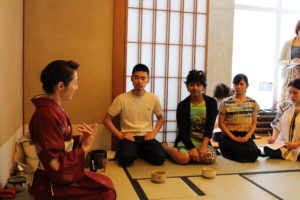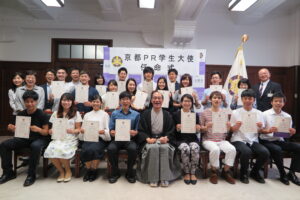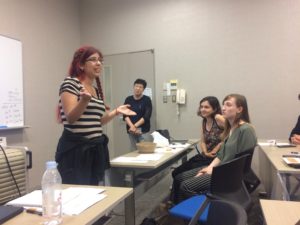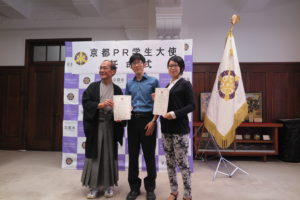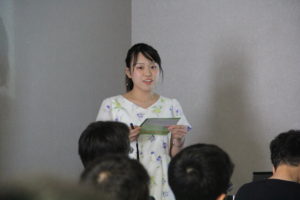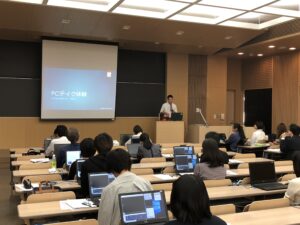We will hold an IELTS pretesting trial session (free of charge) for students.
Continuing from last year, the University Consortium Kyoto will hold a free IELTS pretesting trial session for students belonging to member universities of the University Consortium Kyoto.
The pre-test is conducted in a way that is similar to the actual IELTS exam.
We welcome those who are interested in what IELTS is, those who are planning to take IELTS, and those who want to test their English proficiency.
Click here for the flyer
IELTS is an English language test that is recognised by more than 10,000 institutions in 140 countries around the world.
More than 3.5 million people around the world take the test annually to study, immigrate, or work.
The IELTS Pretest is a “free” test offered by the Cambridge English Language Assessment Board.
Please use it as a practice before taking IELTS.
| schedule | Tuesday, August 27, 2019 |
| time | Morning Session 9:45~13:00 Afternoon Session 14:15~17:30 |
| meeting place | Campus Plaza Kyoto, 5th Floor, Joint Laboratory No. 1 Map: https://www.consortium.or.jp/about-cp-kyoto/access |
| target | ・Students enrolled in member universities of the University Consortium Kyoto ・Those who are interested in or plan to take the IELTS exam ・ Those who want to measure their English proficiency |
| Capacity | Morning and afternoon sessions: 25 people each (advance registration required) * If there are many applicants, a lottery will be held. * Same content for both morning and afternoon |
| substance | ・Explanation of pre-test implementation ・Reading test (75 minutes) ・Listening test (40 minutes) ・Q&A session (Implemented by Japan English Proficiency Test Association) |
| Application | Please fill in the following items and apply by e-mail to the following contact information. Subject: IELTS Pretesting Trial Session for Students Text: (1) University (2) Name (in Roman letters) (3) Telephone number (4) E-mail address (5) Desired test time (morning and afternoon) (6) Motivation for application (about 3 lines) |
| deadline | Monday, August 19, 2019 |
| cost | free |
(Precautions for test takers)
*Turn off your mobile phone and put it in your hand luggage along with your watch, electronic devices, etc.
* There are three items on the desk: a pencil, an eraser, and water in a clear plastic bottle.
*Unlike IELTS, you do not need a passport at the time of registration.
< Inquiries> University Consortium Kyoto International Business Department
TEL:(075)353-9164
FAX:(075)353-9101
E-mail: kokusai ■ consortium.or.jp (Please change ■ to @)















